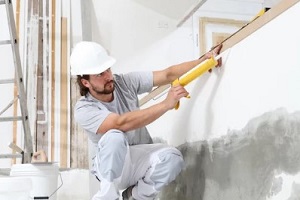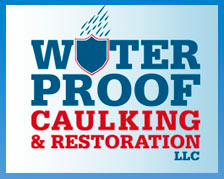 Southeastern Pennsylvania is home to fertile farmlands and bustling metro areas like Philadelphia side by side. The commercial buildings that call this area home must remain vigilant against the wide fluctuations in Pennsylvania’s weather, from humid summers to snowy winters.
Southeastern Pennsylvania is home to fertile farmlands and bustling metro areas like Philadelphia side by side. The commercial buildings that call this area home must remain vigilant against the wide fluctuations in Pennsylvania’s weather, from humid summers to snowy winters.
Such rapid changes can damage a building, including caulking the structure’s most vital entry points. When caulk fails, the building is no longer protected against damage and even air intrusion, which can increase utility bills.
Here are some of the primary reasons why southeastern Pennsylvania commercial buildings require routine caulking maintenance.
What Causes Caulk to Fail
Many people view caulk as a set-it-and-forget-it type of installation. A caulk line is installed when the building is built or when changes are made, and then it is assumed that the caulk does its job from then on.
However, caulk will wear out over time, even in properly cared for buildings. Caulking maintenance includes regularly checking to ensure that the caulk is still functioning correctly; if not, replacement is in order. This is a simple task as long as it is caught early.
Caulk fails for many reasons, and understanding what can damage caulk gives insight into where to look for damage and how often. Weather is the most common reason for caulking to fail, which means that the exterior caulk is at the most significant risk.
With Pennsylvania weather fluctuating between intense UV rays in the hot summer sun and heavy snowfall during a lengthy winter, caulk is consistently expanding and contracting. This will eventually loosen its grip and cause it to wear out.
Other reasons that caulk might fail include age and overall wear. If it has been some time since your building has done anything with its caulk, new material is likely in order. Most caulk will last around five years. In frequently used areas, such as door jambs and windows, the caulk may wear out faster.
What Happens When Caulk Wears Out
Once a commercial building’s caulk has stopped functioning at optimal levels, residents and visitors may not notice a difference—at first. Over time, the damage will become more apparent. Utility bills may gradually increase as outside drafts can penetrate the building, interfering with internal atmosphere control. AC units and furnaces must work harder to maintain the internal temperature.
As moisture wicks into the areas exposed by caulk that has crumbled or pulled away, it expands and contracts to break apart masonries such as stone or brick. This results in cracking, which allows more water in and gradually worsens the cycle. Over time, damaged masonry will spread and could compromise the structural integrity of the building.
Simultaneously, water infiltrating through failed caulking can reach the interior walls of a commercial building, where mold may begin to grow. Mold is silent, and no one will notice it until it becomes a severe problem.
Can You Repair Caulk Yourself?
The purpose of caulk is to provide an airtight seal in small junctures of a building. This means properly removing old caulk and installing the new material must be done meticulously. It is possible for a layperson to repair caulk on their own, but it is not wise.
Those without experience make simple mistakes that leave the area without a uniform seal, so the caulk does not perform its job properly, even when freshly installed.
Professionals can install caulk the right way the first time. This includes carefully removing the existing caulk so that the surrounding structures are not damaged or pulled away. They can then add new caulk in the right formulation (silicone, vinyl, or another type depending on the building’s needs) to seal the gap.
New caulk should be installed smoothly, in the right direction, and at the right temperature for the best results, and professionals have cultivated the skills and techniques necessary to do this job correctly. This leaves you free to dedicate your team’s attention to the projects and tasks they are most suited for.
Trust the Professionals to Repair Your Commercial Caulking
Regular maintenance and caulk inspection should become a consistent part of your building’s strategy. Southeastern Pennsylvania is home to dramatic changes in weather that can compromise a commercial building’s caulking integrity.
If you need assistance with your southeastern Pennsylvania commercial caulking project or are unsure, contact the experts at Waterproof Caulking and Restoration. We can ensure that your caulk is functioning correctly by assisting with an inspection and replacing any compromised sections.
